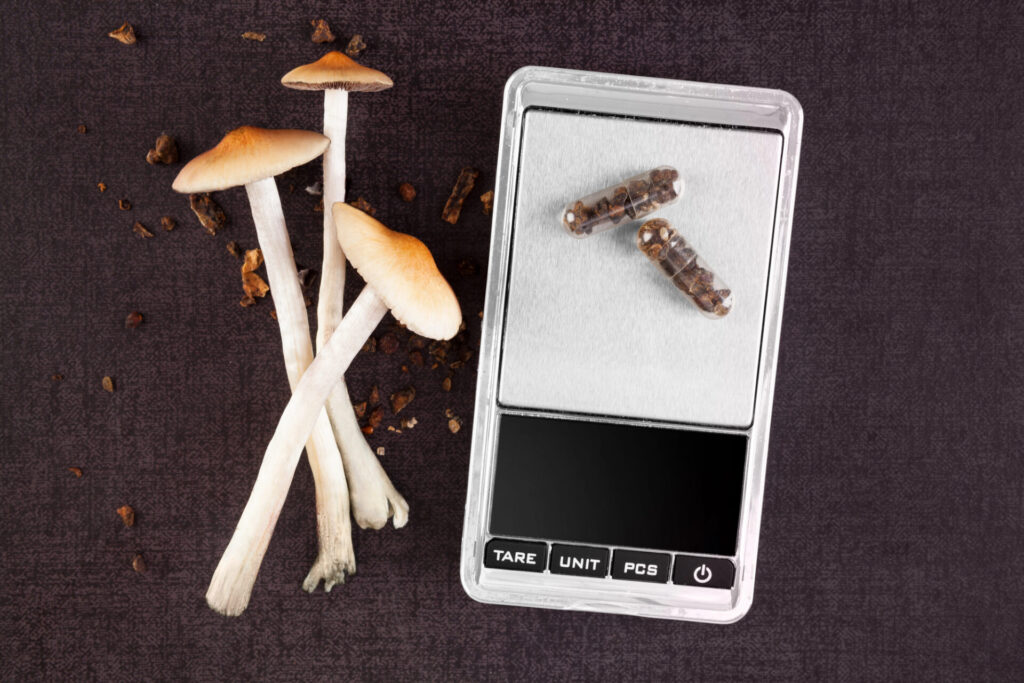Pam Conboy
According to Mental Health America, more than 20% of U.S. adults -roughly 50 million- are experiencing mental illness. Even when individuals do have access to mental health care, our conventional medical system often relies on a “prescribe and park” approach, never truly getting to the root cause.
We Can Do Better Than This!
We are in the midst of a psychedelic renaissance. Psilocybin, the active compound in “magic mushrooms,” has demonstrated both a very strong safety profile and powerful therapeutic potential. This led the FDA to grant it breakthrough therapy status in 2018 and 2019. Moreover, most major academic institutions including Johns Hopkins, University of California, and many others continue to invest in psychedelic research.
“Psychedelics represent a fascinating frontier in neuroscience and mental health, offering profound insights into the workings of the human brain and the potential to treat some of our most challenging psychiatric conditions. However, it is crucial to approach this field with both scientific rigor and deep respect for the power of these substances.” Burton Tabaac, MD, Section Chief, Neurology, Carson Tahoe Health. Associate Professor of Clinical Neurology, UNR School of Medicine
Despite need, evidence, and countless personal stories of profound, and durable transformation, most who might benefit from psilocybin still lack access.
The Science
Psilocybin and its active metabolite psilocin are considered both psychedelics and entheogens—natural substances that induce non-ordinary, spiritual, or mystical states. The chemical structure is similar to serotonin, our primary calming neurotransmitter. Psilocybin also influences dopamine, the brain’s main reward neurotransmitter, and glutamate, the primary excitatory neurotransmitter. Together, these biochemicals help regulate emotion, mood, and other neuropsychiatric processes. Additionally, the mushrooms’ strong anti-inflammatory properties influence the hypothalamic-pituitary-adrenal (HPA) axis, which helps manage stress response. Psilocybin also supports balanced immune function through the activation of microglial and astrocyte cells in the brain.
Research also shows that psilocybin “disintegrates” habituated brain networks, creating a state of high neural entropy. This restructuring allows for new thought patterns and perspectives by promoting neuronal growth and connectivity—a process known as neuroplasticity. While we experience high neuroplasticity in our youth, vital for learning and memory, factors such as age, trauma, poor lifestyle habits, and genetics can hinder neuroplasticity later in life. So called dysfunctional plasticity, can trap us in negative thought patterns and habits and is linked to various neuropsychiatric and psychological challenges including anxiety, depression, traumatic stress, and addiction.
It is the psilocybin|psilocin triggered neuroplasticity which lends itself to the perceptual shifts and emotional reprocessing that are currently believed to be at the foundation of its therapeutic benefits.
Related:
Beyond Mental Health
Notably beyond myriad benefits for mental health, psilocybin’s therapeutic benefits have been demonstrated in a variety of neurological|neurodegenerative conditions including: dementia and Alzheimer’s disease, Parkinson’s disease, stroke, and traumatic brain injury.
The Stigma
Despite its early promise as a therapeutic agent and its strong safety profile, psilocybin became stigmatized during the 1960s. This ultimately led to the U.S. government classifying psilocybin as a Schedule I drug in 1970 followed by the United Nations Convention on Psychotropic Substances international ban on psychedelics (1971). Since then, however, Johns Hopkins has published over 200 papers, making psilocybin the most extensively studied natural psychedelic substance.
High-quality research, compelling success stories, and vocal advocates have renewed interest in and respect for our ancient plant medicines. Today, we are seeing a resurgence of scientific research and growing recognition from scientists, healthcare practitioners, and the general public regarding the potential for psilocybin and other entheogens to address deep-rooted psychological challenges.
Safe, Effective, and Protected Access
As of this writing, Oregon and Colorado are the only states that have decriminalized the use of psilocybin, but many other states and municipalities are considering similar legislation. Use exemptions outside of decriminalization do exist, however, for both medical research and the sincere, spiritual use of entheogenic substances under the Religious Freedom Restoration Act (RFRA) of 1993.
The federal RFRA legislation protects the use of psychedelic and entheogenic substances in spiritual practice, which is the basis for Reno-based Setas Seminary’s sacramental use of psilocybin. As co-founder of Setas Seminary, I can attest that our mission is a sincere one: to help people achieve whole mind-body wellness. In addition to a wide range of lifestyle tools—including nutrition, meditation, movement, breathwork, hot and cold therapy, sleep, sunshine, and healthy relationships—we reverently utilize organic, 3rd party quality-tested, whole psilocybin-containing mushrooms, as one tool in the whole wellness toolbox. Moreover, all of our products are professionally manufactured into vegan capsules under the highest GMP standards to ensure optimal quality, stability, and performance.
Inspired by my co-founder and naturopathic physician, Dr. Leah Linder’s expertise and clinical experience, and guided by Psychedelic Bar Association attorney insights, we have created a community-based resource for individuals struggling with chronic trauma, resistant depression and anxiety, addiction, cognitive decline, and other challenges impacting quality of life. Whether through the use of our microdose pairings, or participation in a macrodose ceremony, with ongoing intention and integration, the outcomes are truly breathtaking and exceptionally durable.
Call to the Curious: Sacrament Ceremony for Healthcare Practitioners
Setas Seminary’s expressed mission is to support whole wellness and spiritual integration within a genuinely supportive community aided by sacramental plant medicines. As we have seen in our first year alone, this message strongly resonates across age, gender, culture, and position.
Based on growing curiosity and interest from healthcare practitioners specifically, we are planning to offer small group, macrodose ceremonies in advance of a few notable holistic medical conferences in 2025. Although entirely unrelated to the organizers, and independently operated by Setas Seminary, the timing and location of these ceremonies is designed for practitioner convenience:
- San Diego, Late May
- Palm Springs, Early July
- San Diego, Mid September
Should you be interested in participating or simply learning more, please contact me directly at: pamconboy@setasseminary.org
Setas Seminary Reno|Nevada
setasseminary.org
Pam Conboy
With a background in biology, Pam trained as a clinical laboratorian and is currently a doctoral student in naturopathic medicine. She is an IIN certified health coach, trained psychedelic facilitator, medical marketing|business development entrepreneur, and ordained minister. Pam manages strategy and operations for Setas Seminary and its sister manufacturing organization, Setas Group.






